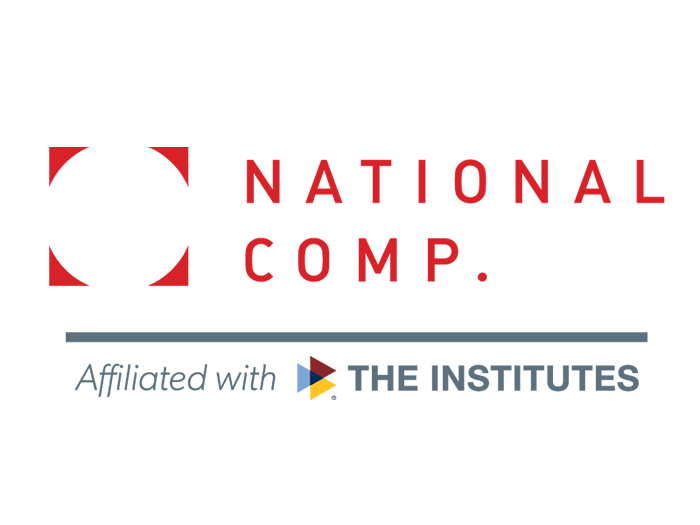Four Ways Digital Exposures Are Making Fiduciary Liability Risks More Fearsome
Planning for the future is an essential part of financial wellbeing.
Under the Employee Retirement Income Security Act (ERISA) of 1974, fiduciaries can be held personally liable for a breach of duties. Negligence, mismanagement or actions not in an employee’s best interest can all lead to lawsuits and regulatory fines and penalties.
Fiduciary liability insurance helps businesses manage the risks related to their employee benefits plans. These incidents can be challenging to understand and might be inadvertently triggered by a human or technological error. Similar to cyber incidents, they can be set off by human action (or inaction).
With the rise in the use of technology in financial services and FinTech companies, many fiduciaries may not be aware that the risks and liabilities carry over to the digital world.
The Rise of Technology in Fiduciary Responsibilities
Before the digital age, fiduciaries relied on their personal financial savvy and industry knowledge to pick the right investments for pension plans or advise employees on their retirement plans.
With technology, that process has become much easier: Fiduciaries can compare potential investment options with a few simple clicks and provide employees with a detailed list of possibilities from a single automated hub.
However, while this process requires less manual input from the fiduciary, the digitization of the process opens up new risks. These automated investment tools often leverage big data, artificial intelligence and machine learning to make recommendations and help compare funds.
While making investments easier, this integrated technology approach often lacks transparency when it comes to how that data is collected and analyzed. Additionally, biased algorithms and programming errors could result in significant losses or inaccurate recommendations.
Any error in these systems or errors that come out of using these systems could be deemed a fiduciary’s responsibility for not properly evaluating and selecting the platform or services in question.
Third-Party Vendors and Digital Portals
Widespread use of technology in financial services also means employees can easily access their financial, investment, wealth and benefits information online via portals.
These services are often set up using third-party vendors selected by the fiduciaries and integrated into an organization’s systems.
While these tools can aid in increasing transparency for employees in wealth planning (since they can access their financial information and benefits in real time), this also poses a risk.
In this instance, one of the best practices for fiduciaries is to ensure diverse investment options — from aggressive to conservative.
If an employer only offered more aggressive options and the economy entered a recession, plan participants could allege that not having more conservative investment options led to significant financial losses.
Since participants no longer need to wait for annual statements to evaluate the performance of their 401(k) investment portfolio, employees can now see the performance of their 401(k) plan in real time and make immediate changes. Consequently, fiduciaries can face claims faster than they would have in the past.
Digital Communication Channels
The rise of remote or hybrid work and the push to go paperless for environmental reasons mean important information is often sent via digital communication channels rather than physical methods.
Not only does this unlock the possibility of important documents and sensitive information being hacked via email or other virtual messaging systems, but it also allows for potential miscommunications.
When interacting online, it is not as easy to pick up on subtle communication nuances and cues vital to understanding. This opens up fiduciaries and employees to miscommunication and misunderstandings in their explanations of benefit plans and investment advice, which could disastrously impact someone’s financial well-being.
As a best practice, employers should hold informational sessions to help explain details that might be otherwise lost if communicated through an online portal.
Changing Laws and Regulations
New compliance requirements on fiduciaries — like data protection laws, cybersecurity regulations and rules surrounding the use of digital assets — can impact fiduciaries and employees.
For example, some 401(k) plans allow participants to invest in alternative assets like cryptocurrencies.
In light of the recent crypto-related scandal with the collapse of FTX, we may see the alternate currency fall under more scrutiny and face regulatory challenges and changes that could affect how they are treated in retirement accounts.
Fiduciaries need to be intimately aware of any regulatory changes that could impact employees’ investments or affect how the fiduciaries themselves ensure their employees’ financial stability in the future, or else they could be liable.
Looking Ahead
Fiduciary liability coverage can often be overlooked, but it is a crucial layer of protection. Some organizations may think they’re too small to need coverage, while others may simply think their risk level is too low to need it. Additionally, many of these businesses often lack the resources to manage a benefit plan, which opens up the possibility of making a mistake with significant financial repercussions.
In fiduciary liability cases, one claim can incapacitate a company financially. According to Coalition research, despite 72% of businesses intending to purchase fiduciary coverage, only one in four actually do so, which is shockingly low compared to the high likelihood of a costly claim.
Any business that offers employee benefits can find itself facing a lawsuit, and in some cases, plan fiduciaries can be held personally liable, even for an unintentional error. Not only are the costs of defending an alleged fiduciary liability claim high, but the chances of losing or settling with the plaintiff are also substantial.
As the world becomes more digitized, fiduciary liability is shifting. Navigating this volatile, uncertain, complex and ambiguous environment means that not everything can be accounted for and due diligence may suffer — but it’s where fiduciary liability insurance is at its strongest. &










